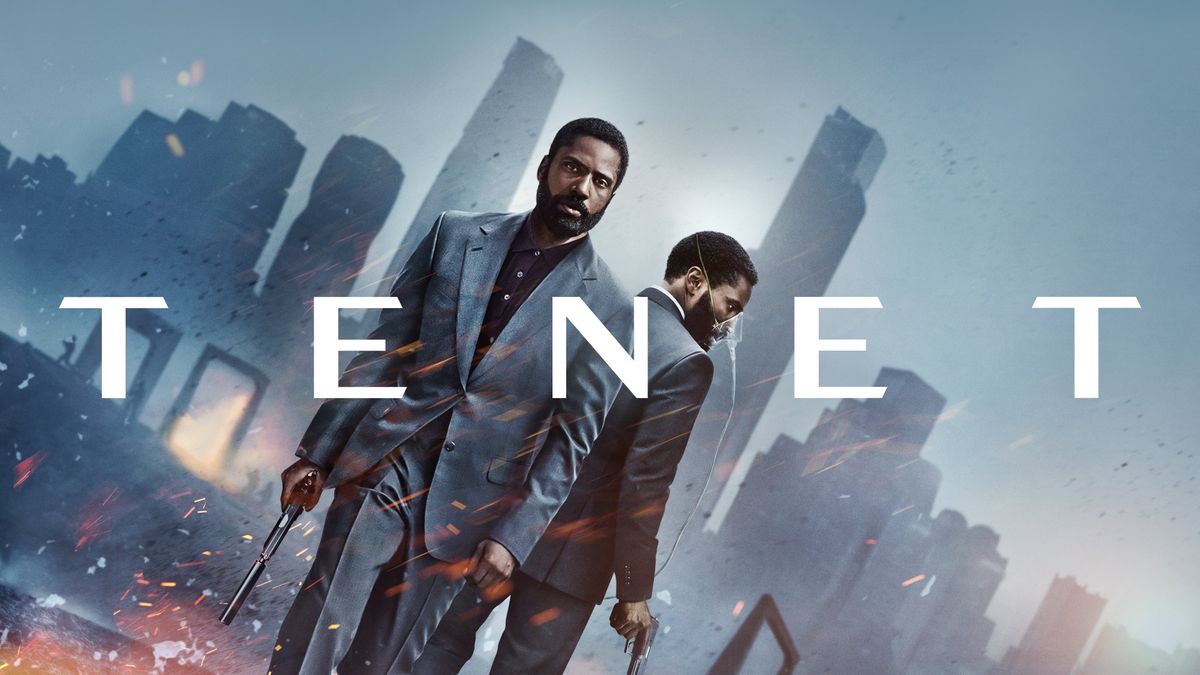Tenet, An Absurd (Bold) Rewatch
That is unlike anything I’ve seen

I rewatched Tenet for the first time and had a realization. It’s a bold movie. And as one of the characters states about a plan to crash a plane into a building, “I thought you were going to say crazy.” And honestly, it is a crazy movie. A weird one. Frankly, an absurd movie.
When I first saw it, I was stunned at the visual scale and ambition of the film. It is ‘cinematic’ in every sense of the word. The scope, scale, and audacity of the story and set-pieces are breathtaking and simple inducing. At the same time, I found the film to be mind-blowingly complex, confusing, and compoundingly impersonal.
It was one of those situations where I was able to generally follow along in broad strokes, but they spoke exceedingly fast about complex theories and plot details that I chalked it up to a novice viewing of the movie. I figured upon rewatching I'd be able to catch much more of the details and nuance, piecing together more of the theory and logic being expressed, then find the personal connection.
I was wrong.
This is only the second time I watched the film, but I feel pretty confident I will never be able to full grasp what is going on. This is due to the fact, after a bit of mid-film research, that a decent portion of what is happening is illogical. Complete gobbledygook.
But you know what. I don’t care.
If Christopher Nolan wants to create an artificial conceit to showcase a car chase in rewind, then I’m here for it. Or inverse fight sequences. Or crashing a plane into a building (on the ground). Or armies battling together in reverse. I’m here for it. All of it.
Tenet is such a stunning visual marvel that almost nothing else matters. While that is reductive, that is what I was thinking while rewatching. And was my thought upon first viewing. The difference being on the first viewing, I was giving the story the benefit of the doubt that something deeper was there. After this viewing, much less so.
That’s not to say that I don’t think any deeper layers, there could be more gleamed from subsequent viewings, I just don’t think I’m going to find it.
Nolan is known for his complex, time obsessed plots and narratives, which sometimes makes sense while other times, not so much. But even when his internal rubric causes the audiences to glaze over at the specifics, the set pieces and style carry the film the rest of the way. You sense the urgency and gravity of the character’s situation, even if you aren’t totally clear of the details.
But Nolan doesn’t just write a script of that involves over-the-top sequences for the sake of it, he does his homework to form a story that allows for these moments. For Tenet, he worked with theoretical physicists about the theories and notions he was building the story around to base principles that could be possible, as he did with Interstellar. However, at a certain point in the story design, dramatic license wins out over practical logistics.
This is absolutely the right course, but it does lead to confusion and a cognitive dissonance while watching. Halfway through this viewing, I stopped to look up what the hell was going on in plain English to see if what I was piecing together was correct or way off base. Turns out I’m tracking everything as best a lay person can, but while there is theoretical truth to the ideas in the story, Tenet makes a bunch of shit up for its purposes and dramatic effect.
I say bravo.
Clearly, this works. While not all of his films have an emotional center or super tight logic, they are all spectacles and, more importantly, connect with audiences.
This is because all of his films have pure audacity. He finds a notion, concept, or scenario, then builds out a unique way to tell that story both narratively and visually awe-inspiring. He takes the medium to its maximum. There is no other type of medium that can reproduce the rush and excitement from the narrative, visual, and auditory melody he produces. (The Interstellar docking scene, one of my favorite scenes of all time, is a perfect example).
This feel, this sense of scope has catapulted himself into the rarefied status of being an event movie, the same that Marvel movies were (yes, past tense). There isn’t a singular director in his stratosphere working today. Not Fincher, not Villanueva, not Spielberg. The closest compatriot right now is Tarantino, but still to a lesser degree. It’s not that they are lesser then, but their types of projects are different, spanning genres and scope. Nolan has a singular scale and vision— the bleeding edge of the cinematic experience.
And being on the bleeding-edge means sometimes the details are muddled or loose logic. But the focus on the larger picture results in pure mastery of the awe and wonder of watching a film in the theater.
It doesn’t end in the theater, though. I rewatched Tenet at home, and I still get a rush watching it (along regretfully for not being able to see it in theaters). A smile innately breaks out during the several dazzling action sequences— the car chase, the hand-to-hand fights, the time warping battle scenes. This movie, like most of Nolan’s filmography, is a case of imperfect perfection. There are parts that don’t quite hold up under scrutiny, but in pursuit of a greater, grander purpose that is unquestionably achieved.
It does everything you hope and expect from a Nolan film, continuing to prove he is still the audacious filmmaker working today and continues to be driven to create stories with a uniquely cinematic experience.
I continue to hope that more auteurs will be given the freedom to prove themselves and gain more artistic freedom to create unique and stunning cinematic stories. Until then, I will wait with fervor in anticipation of Nolan’s next bold cinematic wonder.





Comments ()